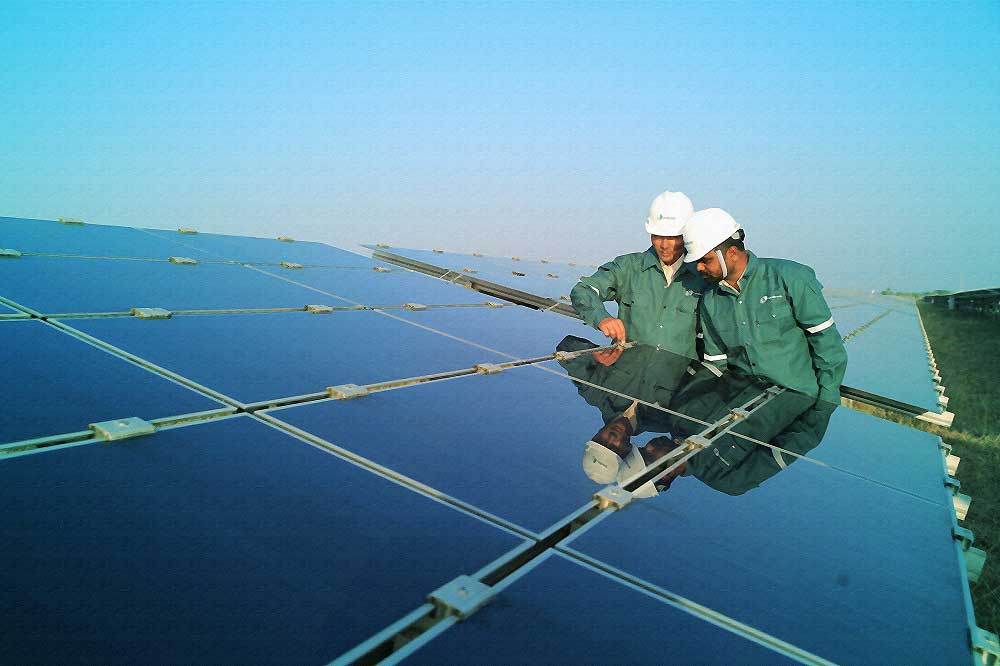With employment vulnerability in mind, experts stress equity in India’s push for a green economy.
A report by International Labour Organization (ILO) shows that 77.4% jobs in India are ‘vulnerable.’
However, “14.2 million jobs could be added in the Asia-Pacific and India if countries adopt changes in energy use that limit global warming to 2°C,” said ILO’s senior specialist-Environment and Decent Work, Cristina Martinez at the TERI workshop.
“India has the challenge of reaching a $5 trillion economy, [while] meeting its climate goals to keep global temperatures to 1.5°C, and at the same time catering to provide jobs for 1.3 billion people,” added Shantanu Gotmare, Country Representative, Global Green Growth Institute.
Against the backdrop, the consultations at the workshop ‘Towards Inclusive Green Economies’—held under the Partnership for Action on Green Economy (PAGE) India initiative—highlighted the need for ‘Just Transitions’ that look at the labour surplus and informal sectors in India.
‘Just transitions’ are a process and a goal to undertake green actions that advance job creation, social justice, and fair transitions for workers, enterprises and communities on an equal footing.
Self-Employed Women’s Association executive director Reema Nanavaty stressed on the inclusion of women and the poor in the transition to a green economy and said they should be at the centre of planning and policy making. She also said that there should be a mechanism to incentivise youth and communities to regenerate forest land, wetlands, etc to create green jobs.
Other issues discussed at the workshop included green budgeting, green financing, sustainable public procurement, sustainable consumption and production, and environment education.
Green budgeting and finance
Existing processes of annual budgets and economic surveys at the state and national levels need to be revamped to consider implications for environment in terms of green budgeting as well as changes in the stock of natural resources, according to experts at The Energy and Resources Institute (TERI) workshop.
Further, “getting adequate finance with reasonable rates is necessary to push the green agenda in green projects—where the gestation period is often long and returns come after a long time.”
Sustainable public procurement
A robust transparent system in tendering system needs to be put into use for sustainable public procurement.
“This can happen if there is sufficient information on products and services for which eco-labels can be used as an information tool. The existing eco-labelling need to be revamped and a new strategy needs to be charted,” said the experts.
It was also suggested that there is a need to get customers more interested in eco-labelling and to get more corporates on board for the idea.
Sustainable consumption and production
The discussions on circular economy in India have largely focused on recycling but other aspects of remanufacturing, reduce, reuse, repair and refurbish need attention—according to the experts.
“There is also a need to establish an e-market for trading of outputs from different industrial sectors and other economic activities. Such a portal should also act as an information portal for uses of different types of wastes/outputs so that users of different wastes can trade and make use of information and best practices,” they added.
“In this context, integrating resource policy with climate and energy policy will be imperative.”
TERI senior fellow R.R. Rashmi pointed out that India doesn’t have a resource use policy like with energy, and TERI has made policy recommendations to the government for the same.
Underlining the importance and urgency of such measures, TERI director general Dr Ajay Mathur said, “There is no question of the direction in which we must move, it is now only about speed. A work plan for just transition is possible. We need to look at the kinds of interventions, business models, ecosystem, and policies that make sense.”
This content is protected by copyright and may not be reused. If you want to cooperate with us and would like to reuse some of our content, please contact: editors@pv-magazine.com.









By submitting this form you agree to pv magazine using your data for the purposes of publishing your comment.
Your personal data will only be disclosed or otherwise transmitted to third parties for the purposes of spam filtering or if this is necessary for technical maintenance of the website. Any other transfer to third parties will not take place unless this is justified on the basis of applicable data protection regulations or if pv magazine is legally obliged to do so.
You may revoke this consent at any time with effect for the future, in which case your personal data will be deleted immediately. Otherwise, your data will be deleted if pv magazine has processed your request or the purpose of data storage is fulfilled.
Further information on data privacy can be found in our Data Protection Policy.